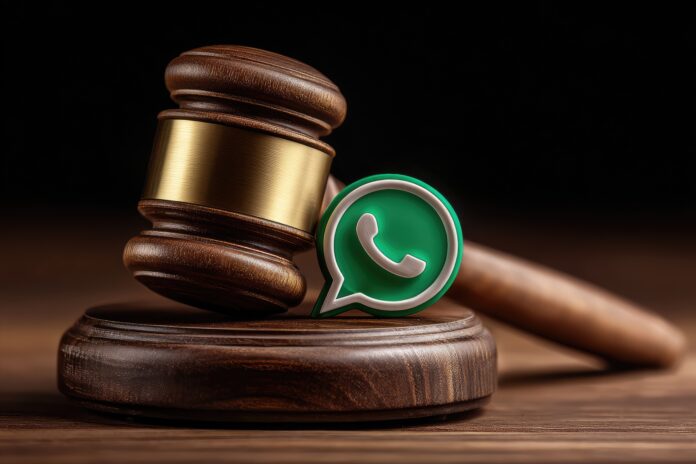Introduction: The Ripple Effect of the WhatsApp vs. NSO Group Lawsuit
WhatsApp vs. NSO Group lawsuit stands as a landmark case in the ongoing battle to protect user privacy and cybersecurity in an increasingly digital world. This high-profile legal fight unfolded after WhatsApp accused the Israeli surveillance firm NSO Group of exploiting a vulnerability to install Pegasus spyware on the phones of over 1,400 users worldwide. The lawsuit not only exposed severe weaknesses in secure communications but also ignited urgent conversations about surveillance technology and its ethical, legal, and geopolitical impacts.
1. No Platform Is Immune to Advanced Spyware
The case proved, without a doubt, that even industry-leading encrypted messaging apps face real risks from sophisticated adversaries. NSO Group’s Pegasus leveraged a zero-day vulnerability in WhatsApp’s call feature, bypassing end-to-end encryption entirely. Most importantly, this attack showed that security must evolve constantly, as even trusted platforms can be breached.
2. Zero-Day Vulnerabilities: Silent Threats Hidden in Code
Because the exploit took advantage of an unknown software flaw, it acted as a reminder that zero-day vulnerabilities are among the most severe threats facing any digital service. Many users believe regular updates alone provide total safety; however, the lawsuit highlighted the need for layered defenses, rapid patch deployment, and a proactive security mindset within both companies and user bases.
3. Surveillance Targets Are Truly Global—and Diverse
One key lesson from the WhatsApp vs. NSO Group lawsuit is that spyware seldom respects borders or professions. The attack targeted politicians, journalists, human rights activists, and government officials spanning dozens of countries. Therefore, the implications extend well beyond Silicon Valley, showing that such sophisticated cyberattacks put democracy, free speech, and human rights at risk on a global scale.
4. Legal Accountability: Technology Firms Can and Will Fight Back
WhatsApp’s decision to legally pursue NSO Group sent a strong message across the tech industry. By taking the fight to court, tech giants demonstrated that they possess legal avenues to challenge and hold accountable companies enabling government surveillance or the suppression of dissent. The outcome established a vital precedent: private actors—especially those accused of violating privacy on a mass scale—can be pursued and sanctioned in court.
5. Limits of Sovereign Immunity and Precedent for Future Lawsuits
NSO Group attempted to claim it should be shielded from legal consequences because it sold its spyware solely to foreign governments. Yet, as U.S. courts ruled against NSO, the decision clarified that companies developing and selling surveillance software to state actors are not entitled to sovereign immunity protections. This sets a critical precedent for future actions against similar surveillance vendors worldwide.
6. The Critical Role of Transparency and User Notification
WhatsApp took a pioneering step by directly notifying over a thousand affected users. Transparency in cyber incidents is vital: it builds user trust and sets a benchmark for how all technology companies should respond after discovering high-impact breaches. Besides that, this action helped drive industry consensus toward responsible disclosure and direct, honest communication with end-users.
7. Continuous Security Investment Remains Non-Negotiable
The lawsuit reinforced a truth many already knew and some had ignored: cyber threats are always evolving. If sophisticated spyware can breach one of the world’s most secure messaging apps, every service must allocate resources to ongoing security audits, ethical hacking programs, and collaborations with security researchers worldwide. Most importantly, this vigilance must remain a continual process, not a one-time project.
8. Tackling Cyber Threats Requires Global Collaboration
Perhaps one of the most far-reaching implications is the need for international cooperation. The WhatsApp vs. NSO Group lawsuit illuminated gaps in cross-border evidence sharing, inconsistent legal standards for digital privacy, and the complex jurisdictional maze for prosecuting international cybercrimes. Addressing such challenges means that global tech leaders, lawmakers, and privacy advocates must come together, harmonize regulations, and devise cooperative enforcement mechanisms.
Conclusion: Toward a Safer Digital Ecosystem
The WhatsApp vs. NSO Group lawsuit reshaped the way we think about privacy, surveillance, and software accountability. The lessons learned from this saga extend beyond technical vulnerabilities. They call for stronger legal frameworks, more transparent disclosure practices, and greater collaboration between nations and companies. Staying vigilant and demanding accountability—be it from surveillance vendors or our own service providers—will be essential to protect society from evolving digital threats.



